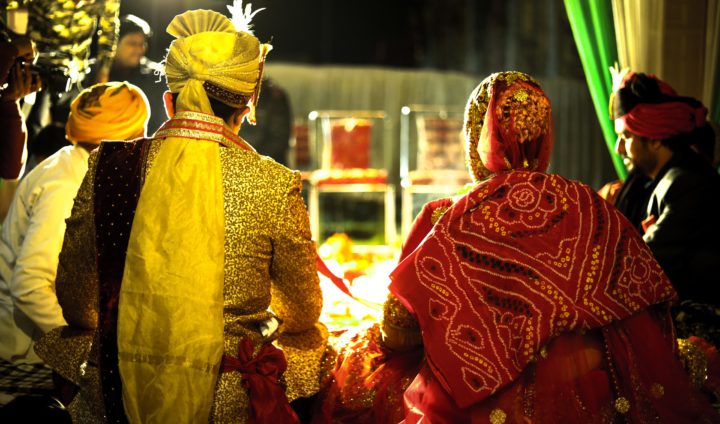In July, Adeel Zeb, the Muslim chaplain for the Claremont Colleges, near Los Angeles, posted on Facebook about something that was bothering him. “I have been approached by multiple Muslim couples recently to perform/lead their ‘secret nikkah (secret Islamic traditional marriage),’ ” he wrote. These students told him that they had fallen into haram, or sin, by having sex outside of marriage, which is prohibited by Islam. They wanted to get right with God by getting married—but they wanted to do so without telling their parents. Zeb described their thinking: “In the short term, I can exercise my passion, and in the long term I won’t go to hell.”
Each of the couples said that they wanted to have a bigger wedding later, with the family involved, but for now their parents were the roadblock to their relationship. In one case, Zeb offered to intervene and talk to one of the fathers, but the couple was reluctant. So Zeb refused to take any part in it. “I am writing this message to warn young people against these secret marriages, and any leader who will arrange the wedding without their respective families being notified,” he wrote on Facebook.
The elements of a traditional Islamic marriage ceremony are fairly straightforward. Both the bride and the groom need to agree to the marriage. At least two witnesses must be present. The groom has to give the bride a gift—money, a trip, or a promise to teach her something, for example. In most cases, the bride also needs a male guardian to be there, typically her dad. Technically, couples don’t even need an officiant, although many might ask an imam to oversee the ceremony. And yet, according to Islamic scholars, the Prophet taught that marriage is supposed to be public; communal weddings follow both the spirit and letter of the law. This expectation was reflected in Zeb’s post: parents and families should be fully involved—and marriage can’t just be a spiritual cover for having sex.
The post set off a flurry of discussion among his friends, many of whom lead influential Muslim organizations around the country. At its core, the conversation wasn’t just about secret marriage and the kind of religious loophole it seems to represent. Zeb and his community were grappling with how young Muslims should navigate sex, relationships, and marriage while remaining faithful to their religious obligations—and how the adults who guide them should think about their roles. It’s a topic that scholars have also been looking at in recent years, as they try to create space to talk about all kinds of sexual encounters among Muslims rather than bristling at the idea that young Muslims have sex.
The idea that young people should wait to have sex until they get married is countercultural in America. Roughly ninety percent of Americans have premarital sex, according to the Centers for Disease Control and Prevention. Many people are sexually active by the time they enter college: at least three-quarters of students reported having had sex in a recent survey of undergraduates at a large public university. That number may be lower among Muslims, although there’s not much recent data to tell us for sure. In one of the largest studies of college sexual activity, from 2001, fifty-four percent of college-aged American Muslims reported having had sex, despite not being married—a number that several sources cited to me. “There’s so much shame and stigma around the conversation,” Qudsia Saeed, a twenty-year-old junior at American University, in Washington, D.C., who has led discussions about sex at her school’s Muslim Student Association, said. “But people are now realizing that we can’t leave the next generation with all the trauma that we carry from the past generation.”







